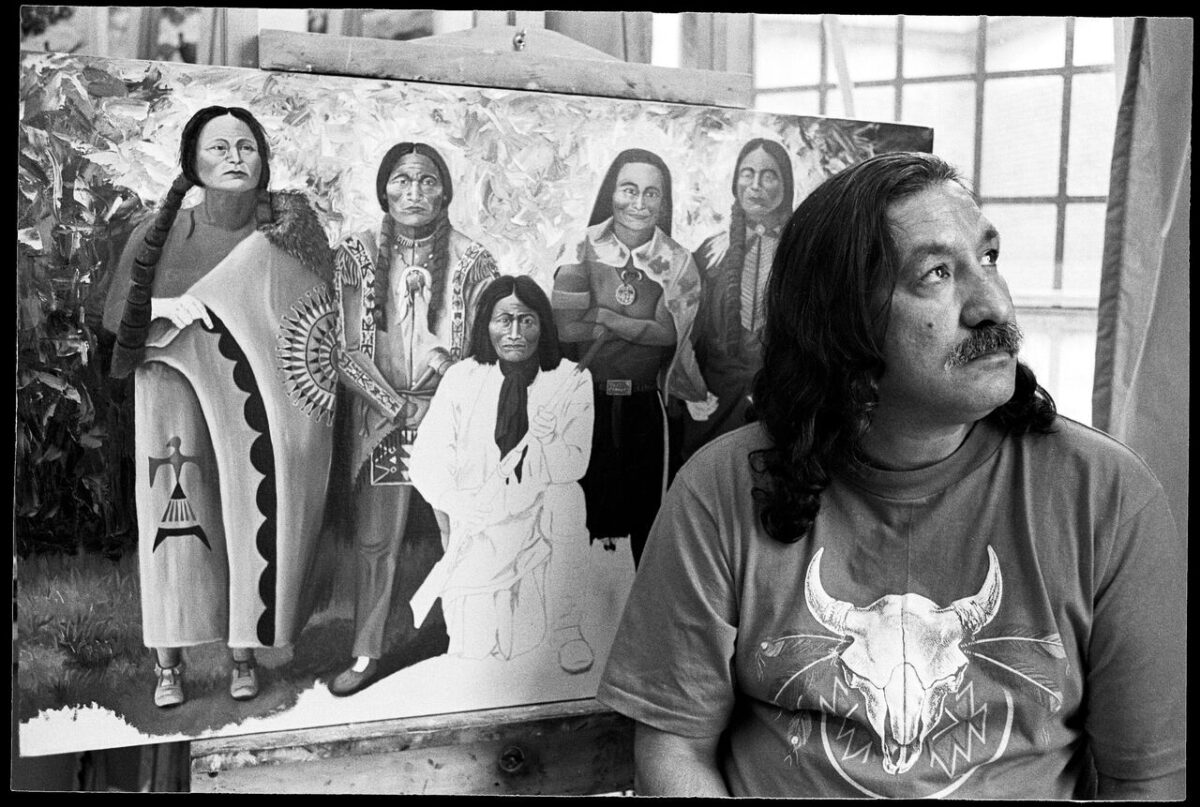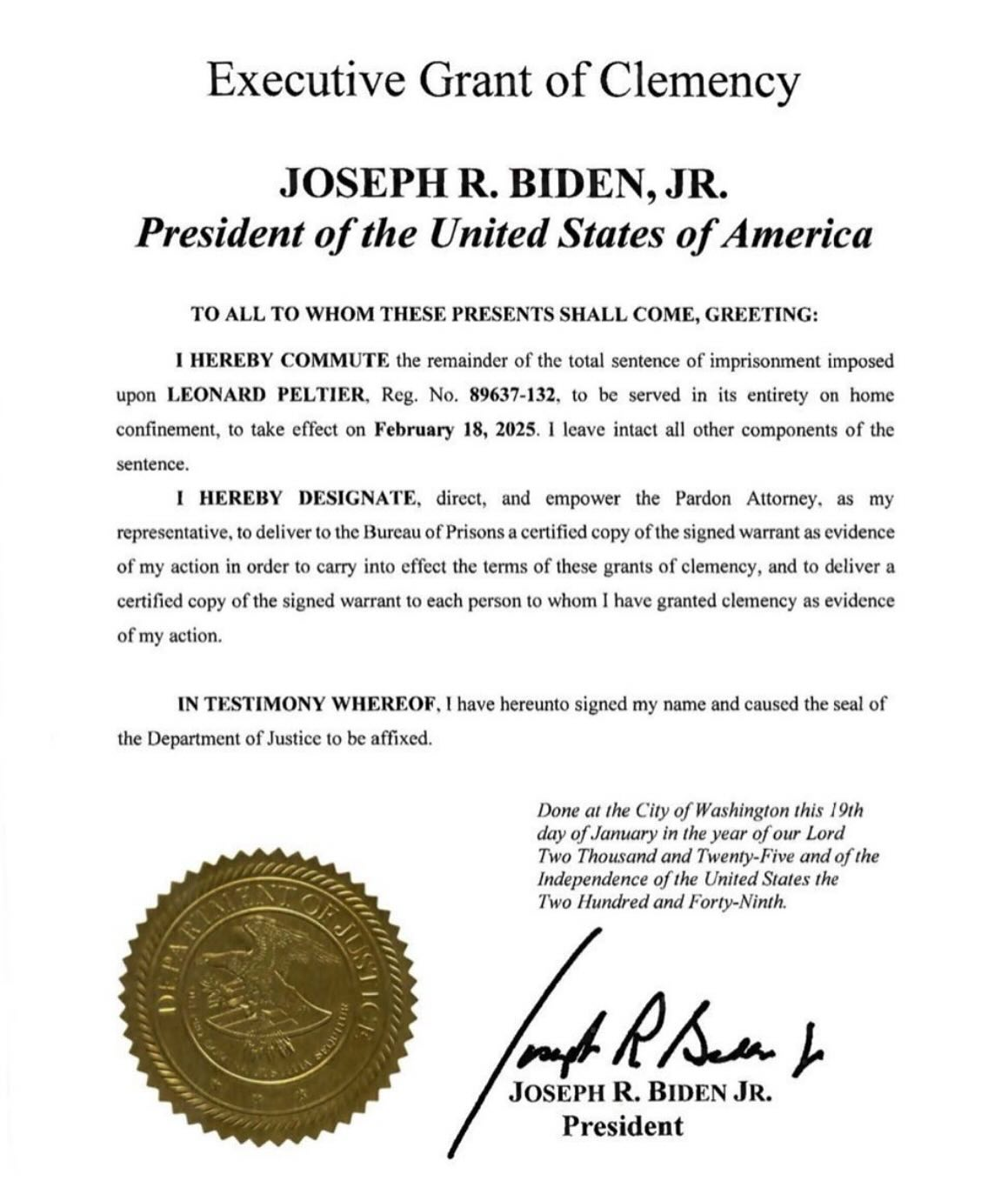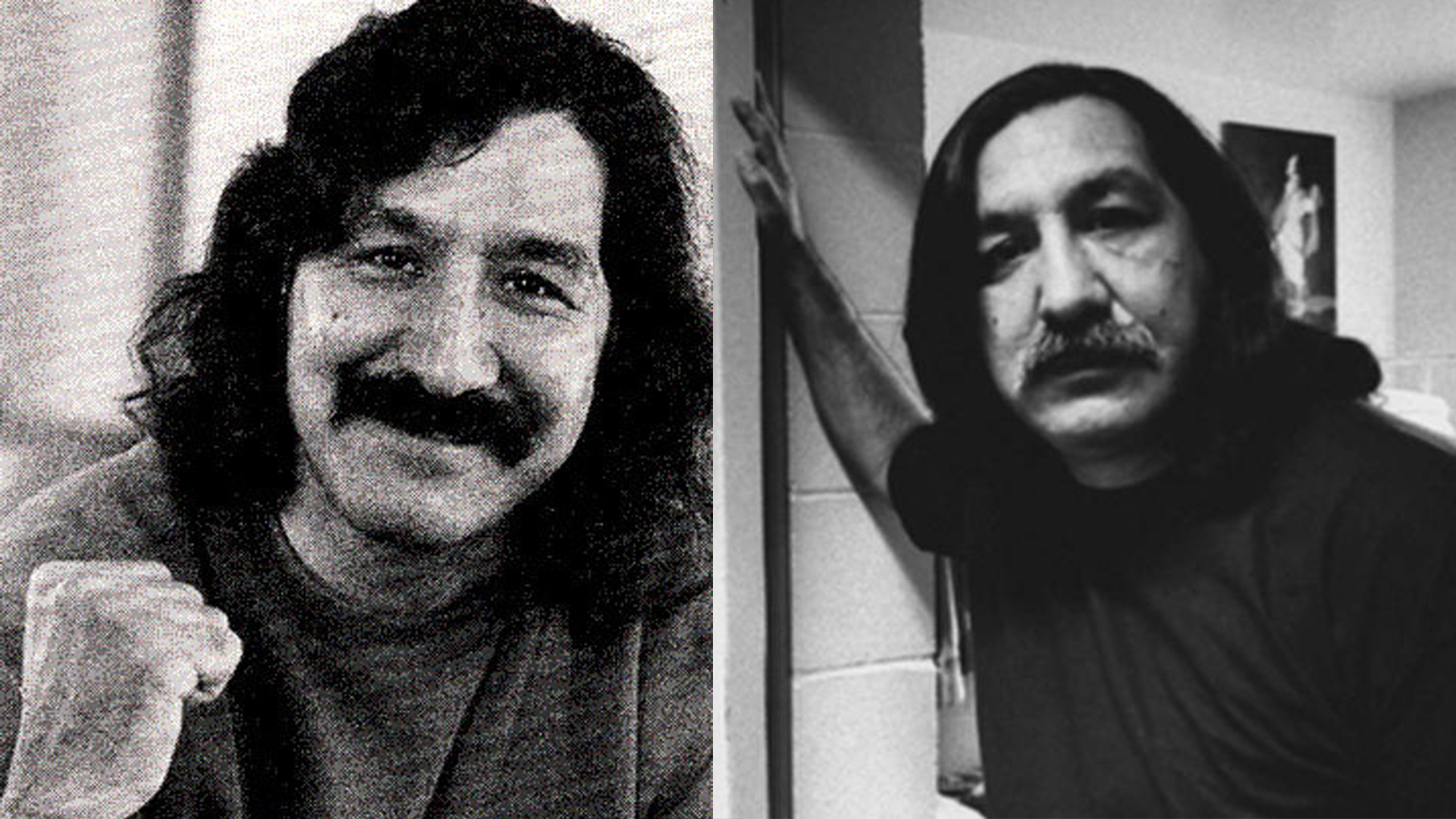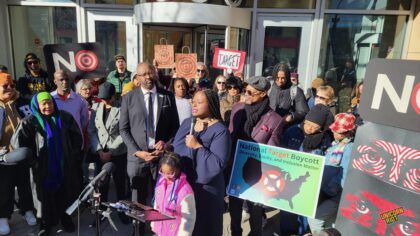Political Prisoner Leonard Peltier Granted Clemency After Decades in Prison
Indigenous rights activist Leonard Peltier was a political prisoner for nearly half a century until he had his life sentence commuted on Jan 20, 2025, to serve the remainder of this sentence at home, effective February 18, 2025. The 80-year-old member of the Turtle Mountain Band of Chippewa Indians, Peltier has been at the center of controversy and a cause famous among global human rights advocates. In 1975 he allegedly killed two FBI agents on the Pine Ridge Reservation and was serving two consecutive life sentences.
In a case that has drawn critical examination over claims of prosecutorial misconduct, questionable evidence, and what supporters have called a deeply flawed trial, the release was granted by a clemency order from President Joe Biden. Peltier’s commuted sentence and freedom was celebrated across Indian-country, and advocated worldwide including Amnesty International, the United Nations, and numerous celebrities who have campaigned for his release.
“It’s finally over – I’m going home,” Peltier said in a statement released by NDN Collective. “I want to show the world I’m a good person with a good heart. I want to help the people, just like my grandmother taught me.”
A Case That Divided Opinions
Peltier’s sentence originated from a violent confrontation on June 26, 1975 on the Pine Ridge Indian Reservation between members of the American Indian Movement (AIM) and FBI agents Ronald Williams and Jack Coler, who were pursuing a suspect in a theft case. Both agents were left dead, and a massive manhunt ensued, which ended in Peltier’s extradition from Canada and conviction in 1977. Peltier has maintained his innocence.
Supporters have continued to maintain Peltier’s innocence, referring to the inconsistencies in the government’s case, including withdrawn witness statements and alleged vindicative evidence kept secret. There were former law enforcement officials critical of Peltier’s release saying that his actions endangered the rule of law.
Years of Advocacy

Over the decades, Peltier’s case has attracted an extraordinary coalition of advocates, including former U.S. Attorney James Reynolds, who has publicly called for his release, and human rights organizations that cite Peltier as a political prisoner. In 2022, the United Nations Human Rights Council’s Working Group on Arbitrary Detention called for his release, labeling his detention a violation of international law.
In the fall of 2022, supporters organized the AIM Walk to Justice, a nearly 1,100-mile march from Minneapolis, Minnesota, to Washington, D.C. The journey, inspired by a dream of Indigenous Protector Movement Director Rachel Dionne-Thunder, aimed to bring renewed attention to Peltier’s case and the broader struggles of Native Americans. Participants brought with them a petition that was signed by thousands to the Department of Justice, demanding clemency for Peltier.
Dionne-Thunder wrote on social media saying her “heart is full” from hearing the clemency decision, and said “This is a moment I have prayed for, walked for, and dreamed of for years.” She also said how Peltier’s story is a reminder of “resilience and strength” of her people, and through enduring unimaginable hardships, “his spirit never broke.”
By 2024, after President Joe Biden made the historic act of commuting the sentences of 1,499 Americans in a single day, calls to commute Peltier’s sentence have been reignited at that point. Advocates emphasized his deteriorating health and the injustices surrounding his conviction, urging the administration to include Peltier in its clemency actions.
“He has served 49 years in prison, is now in poor health, and should be given an opportunity to spend the remainder of his life with his family,” wrote OST President Star Comes Out in a letter addressed to President Biden on December 3, 2024.
Responses to Justice
President Biden’s reasons for granting Peltier’s clemency were due to his severe health concerns and advanced age among contributing factors.
The final White House press statement on the matter read: “The President is commuting the life sentence imposed on Leonard Peltier so that he serves the remainder of his sentence in home confinement. He is now 80 years old, suffers from severe health ailments, and has spent the majority of his life (nearly half a century) in prison. This commutation will enable Mr. Peltier to spend his remaining days in home confinement but will not pardon him for his underlying crimes.”

Peltier’s family and supporters have expressed long awaited relief for the decision. Peltier’s son, Chauncey Peltier, said, “It means my dad finally gets to go home.” On the reservation in Belcourt, North Dakota, the Turtle Mountain Band of Chippewa has prepared a house for Peltier.
Peltier’s release underscores ongoing debates about the justice system’s fairness and its treatment of Indigenous peoples. The advocacy towards his freedom seemed never-ending, now there will be ongoing celebrations.
Peltier’s sister, Betty Ann Peltier, is one of the many who are celebrating. “I am going to cook him the biggest meal I can,” she said. “Fry bread and foods he hasn’t eaten for years.”
Please consider a tax-deductible donation to help sustain our horizontally-organized, non-profit media organization:

Follow us on X (aka Twitter), Facebook, YouTube, Vimeo, Instagram, Mastodon, Threads, BlueSky and Patreon.


